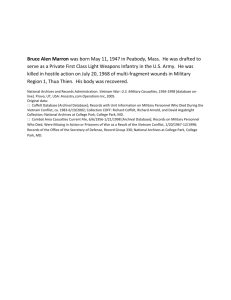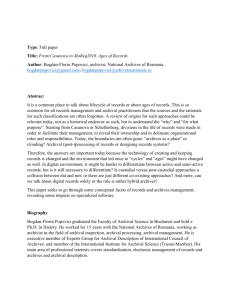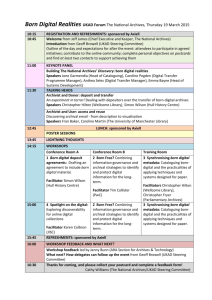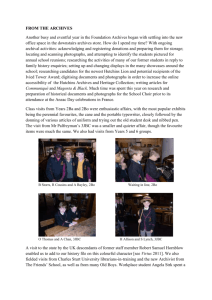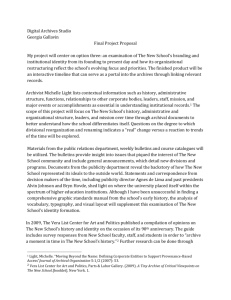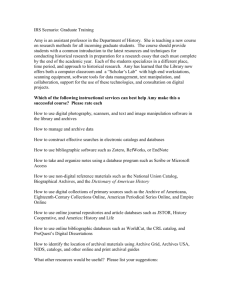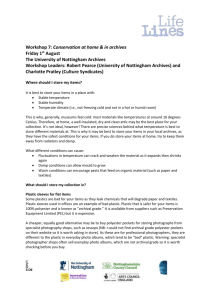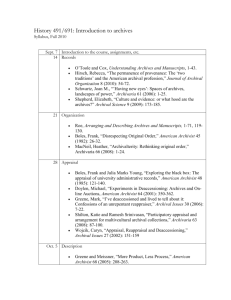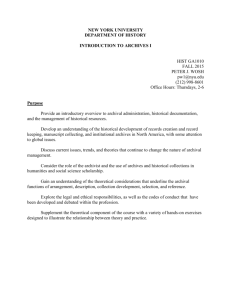Handout for Grant Application Assignment
advertisement
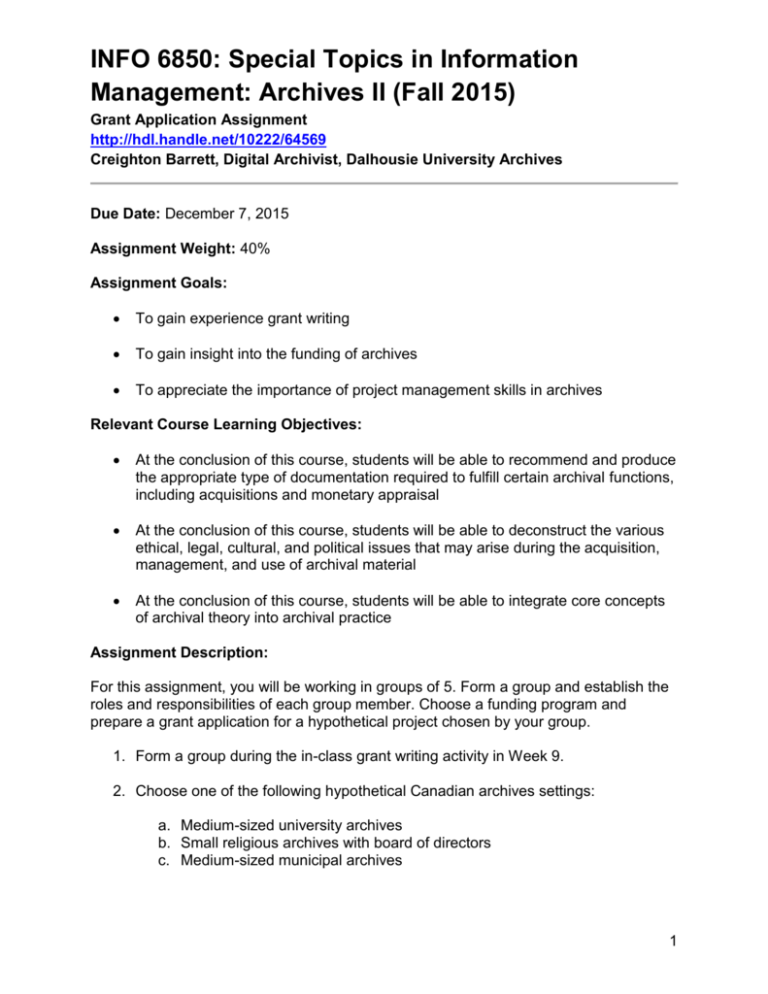
INFO 6850: Special Topics in Information Management: Archives II (Fall 2015) Grant Application Assignment http://hdl.handle.net/10222/64569 Creighton Barrett, Digital Archivist, Dalhousie University Archives Due Date: December 7, 2015 Assignment Weight: 40% Assignment Goals: To gain experience grant writing To gain insight into the funding of archives To appreciate the importance of project management skills in archives Relevant Course Learning Objectives: At the conclusion of this course, students will be able to recommend and produce the appropriate type of documentation required to fulfill certain archival functions, including acquisitions and monetary appraisal At the conclusion of this course, students will be able to deconstruct the various ethical, legal, cultural, and political issues that may arise during the acquisition, management, and use of archival material At the conclusion of this course, students will be able to integrate core concepts of archival theory into archival practice Assignment Description: For this assignment, you will be working in groups of 5. Form a group and establish the roles and responsibilities of each group member. Choose a funding program and prepare a grant application for a hypothetical project chosen by your group. 1. Form a group during the in-class grant writing activity in Week 9. 2. Choose one of the following hypothetical Canadian archives settings: a. Medium-sized university archives b. Small religious archives with board of directors c. Medium-sized municipal archives 1 INFO 6850: Grant Writing Assignment d. Medium-sized independent, non-profit community archives with collecting mandate of your choice (e.g., thematic area, regional area, etc.) 3. Information about the Young Canada Works program (YCW) and Nova Scotia Provincial Archival Development Program (PADP) will be made available on the course website. 4. Review the funding programs with your group and choose a program. 5. Review the application guidelines, evaluation tools, and other materials provided by the funding program. 6. Determine a hypothetical project that fits with the funding criteria outlined in the funding program chosen by your group. Possible projects include, but are not limited to: a. Processing an unprocessed collection in your institution’s backlog. b. Mounting finding aids online. c. Contracting a professional service provider to help achieve a strategic goal or objective of your institution (e.g., disaster planning, collections assessment, outsourcing digitization work, etc.). d. Creating an internship or workstudy for a student or recent graduate. 7. Complete the application form(s) and any other material required by the funding program. 8. Create a job posting or RFP for any contract workers or contracted services to be funded with the grant. 9. Submit one copy of your group’s grant application via the course website. Assignment Tips: Remember that the assignment goals, assignment assessment criteria, and course learning objectives are designed to show you the purpose and intention behind the assignment. Review these materials closely before choosing a funding program. Establish your roles and responsibilities and choose the funding program based on the type of archives on which the group wishes to focus. Use Internet search engines to find standards and best practices for the grant writing and budget planning. Indicate how your project aligns with relevant professional standards and best practices. 2 INFO 6850: Grant Writing Assignment Remember that the project will involve hiring a contract worker or contracting a professional service provider. There are human elements and budgetary components to the grant application. Consider your own professional practice as an archivist when preparing the grant application. How would you justify the project? How would you manage and support project staff? Evaluation: The grant application will be evaluated according to four criteria: knowledge and expression, comprehension, application and analysis, and structure and overall presentation: Knowledge and Expression (25 points) – The grant application will be assessed for evidence of your understanding of the grant program objectives as well as the budgetary, human resource, labour, and other managerial issues presented by the project. This component also includes a general assessment of your ability to write a clear and concise application. This includes clarity, grammar, syntax, and other elements of writing style. 1. Comprehension (25 points) – The grant application will be evaluated for evidence of your comprehension of project management in archival settings. This includes an assessment of your ability to estimate project costs and timelines and describe the benefits of the project to the hypothetical archives and its users. 2. Application and Analysis (25 points) – The grant application will be evaluated for evidence that the program’s guidelines and requirements have been observed. The project will also be evaluated in terms of how it aligns with professional standards and best practices. Structure and Overall Presentation (25 points) – Evidence of your attention to the details that help create a successful application will be assessed. The structure of the grant application will be assessed in terms of its layout, formatting, and readability. The overall presentation of the grant application will be assessed in terms of its thoroughness and attention to detail and its potential for provoking further discussion inside and outside the classroom. Marks: Marks will be provided in letter grades that conform to the School of Information Management’s Grading System: http://www.dal.ca/faculty/management/school-of-information-management/currentstudents-site/sim-grading-policy.html Please feel free to consult me if you have any questions about the grading of your work. 3
